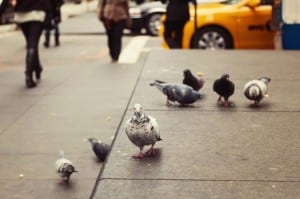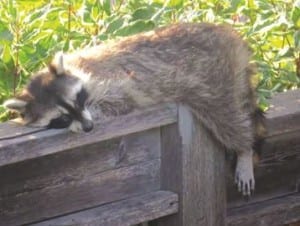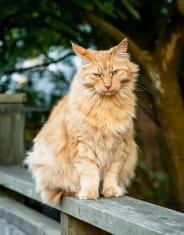
by Pigeon Patrol | Mar 25, 2016 | Bird Netting, Pigeon Patrol's Services, Pigeon Spikes, UltraSonic Bird Control
 25India and her neighbours ought to remember that from superstition to intolerance is often a short step
25India and her neighbours ought to remember that from superstition to intolerance is often a short step
We’re in a sort of skiff under a small bridge over the river Ravi in Lahore. Heavy traffic, incessant honking, and all the expected city noises fill the air. The river itself is sluggish, and, like the Yamuna in Delhi, more a drain than a river. As our little boat makes its way from one shore to another, a strange packet floats down from the bridge into the river. I think resignedly how alike we are across borders: stand anywhere, and chuck anything overboard without a thought about the consequences.
But I’m wrong — in one thing at least. This is not rubbish as I soon discover: a bunch of kites parked on a small mud island quickly wing it across and pick at the packet. Later, standing on the bridge, the story unravels. Dotted here and there along both sides of the bridge are men and women holding plastic bags. They’re poor, some are disabled and what they have in their hands is meat — the offal and leftover bits of meat that humans don’t eat, which they purchase from butchers for cheap.
Here, on the bridge, the meat-sellers stand and offer this to anyone who wants to leverage some good karma by feeding the birds. So, the rich and the middle-class stop by, and they or their drivers step out and buy, and then cursorily chuck it over the side. Good deed done, they can get on with life. Meanwhile, as an environmental activist tells me, the birds suffer, they grow fatter and fatter, and sometimes this kills them and their numbers fall.
I’m struck by how alike we are — no matter that we are across the border. And no matter that there may be differences in religion. Here, in Delhi, every day when I drive to work, I see a similar sight.
Turning off the main road to the lane that leads to my office, I traverse a small traffic island on my right. Here, every morning, a young man arrives bearing two large sacks of grain and chana, and a number of light metal plates. He sets himself up with four or five plates and, soon enough, cars stop, oblivious to the vehicles of office-going people they are blocking. They buy a plate and then chuck its contents right there. Then, there’s a great flapping of wings as hundreds of pigeons descend onto the food and begin to eat it up. Meanwhile the grain-throwers get on with life, secure in the knowledge that they have earned their brownie points for this life and the next.
The scattering of grain on the ground goes on all day. By evening, the pigeons are stuffed and disinterested, the young entrepreneur (what else can you call him?) is still there, and sometimes a desultory customer will show up and he’ll get some more business. One day I watched a young girl arrive in a large limousine. While her rich parent sat in car, the girl stepped out, ayah in tow. Instructions relayed from parent to driver to ayah to the supremely bored girl, who followed those nonetheless. Perhaps she had an exam to clear or an engagement in the offing.
Elsewhere there may be people feeding monkeys, or cows, or crows. It’s a strange thing: we destroy their habitat, and then feed them silly to gain good karma.
I’m struck by many things about this phenomenon: there’s the spirit of entrepreneurship. For the poor, whether it’s in Lahore or Delhi or elsewhere, it’s a way to trade on people’s blind faith and make a rupee or two out of it. You have to admire that.
But then, there’s also this question that bothers me every day: how have we become so deeply superstitious? Where does that come from? And why are we unable — or unwilling — to see that the pigeons and kites and other sundry animals and birds are being overfed?
There are other concerns too: it’s easy for me to laugh at the pigeon-feeders but this isn’t just funny. It’s precisely this kind of superstition and blind belief that kills the Dabholkars, Pansares and Kalburgis of this world. From superstition to intolerance is often a short step: you can convince yourself that, say, eating beef will bring you bad karma — even if it’s your neighbour eating it — and you then take law into your own hands and kill them. Or you can convince yourself that a woman is actually a witch and you destroy her life (and sometimes take over her property too).
Increasingly, in India today — and who knows, perhaps across the border too — using superstition and blind belief, or exploiting the human need for faith, have become weapons in the hands of cynical politicians and corporates.
If a builder can conduct human sacrifices to appease the evil spirits in a building where people will live and love and give birth and die, there has to be something seriously wrong with us.
About Pigeon Patrol:
Pigeon Patrol Products & Services is the leading manufacturer and distributor of bird deterrent (control) products in Canada. Pigeon Patrol products have solved pest bird problems in industrial, commercial, and residential settings since 2000, by using safe and humane bird deterrents with only bird and animal friendly solutions. At Pigeon Patrol, we manufacture and offer a variety of bird deterrents, ranging from Ultra-flex Bird Spikes with UV protection, Bird Netting, 4-S Gel and the best Ultrasonic and audible sound devices on the market today.
Voted Best Canadian wholesaler for Bird Deterrent products four years in a row.
Contact Info: 1- 877– 4– NO-BIRD (www.pigeonpatrol.ca)

by Pigeon Patrol | Mar 24, 2016 | Bird Deterrent Products, Bird Netting, Pigeon Patrol's Services, UltraSonic Bird Control
 A woman was horrified to find pigeons, doves and blackbirds lying dead under trees in Witham in a suspected poisoning attack.
A woman was horrified to find pigeons, doves and blackbirds lying dead under trees in Witham in a suspected poisoning attack.
In recent weeks, great-grandmother Teresa Dawson, 77, of Collingwood Road, made 14 grim discoveries under trees in her garden, in Newlands Drive car park and Holy Family Church yard off Guithavon Street.
About Pigeon Patrol:
Pigeon Patrol Products & Services is the leading manufacturer and distributor of bird deterrent (control) products in Canada. Pigeon Patrol products have solved pest bird problems in industrial, commercial, and residential settings since 2000, by using safe and humane bird deterrents with only bird and animal friendly solutions. At Pigeon Patrol, we manufacture and offer a variety of bird deterrents, ranging from Ultra-flex Bird Spikes with UV protection, Bird Netting, 4-S Gel and the best Ultrasonic and audible sound devices on the market today.
Voted Best Canadian wholesaler for Bird Deterrent products four years in a row.
Contact Info: 1- 877– 4– NO-BIRD (www.pigeonpatrol.ca)

by Pigeon Patrol | Mar 23, 2016 | Animal Deterrent Products, Bird Deterrent Products, Bird Netting, Pigeon Spikes
 A backyard cat breeder found guilty of animal cruelty charges has pleaded with an Adelaide magistrate not to allow the RSPCA to remove her remaining cats.
A backyard cat breeder found guilty of animal cruelty charges has pleaded with an Adelaide magistrate not to allow the RSPCA to remove her remaining cats.
Glynne Sutcliffe, 75, was found guilty of several charges of mistreating an animal after more than 100 cats were seized from her Chandlers Hill property in 2011.
The Adelaide Magistrates Court has heard the cats were kept in appalling conditions and many had untreated medical problems including the feline AIDS virus.
RSPCA prosecutor Ronan O’Brien asked the court to impose a hefty fine and order her to pay close to $17,000 in legal costs, vet bills and boarding fees.
He also wants her banned from owning any animal.
“The conditions that the cats were living in [were] quite simply appalling,” Mr O’Brien said.
Please don’t let [my cats] go to the slaughter house.
Glynne Sutcliffe
“The defendant has not shown any remorse for the conditions at the property. She remains indifferent to the plight of the cats.
“The cats in the matter weren’t pets, they weren’t part of a rescue operation where it all got too much.
“The sole purpose of these cats were to make the defendant money — $400 a piece.”
Mr O’Brien said he would expect that a person making money from the sale of cats would look after that investment by providing adequate living conditions for them.
“She is purposefully breeding these animals to make money and yet the animals that are providing that income aren’t receiving even the most basic living conditions. This is a cat farm.”
Sutcliffe told the court she still owned about 20 cats, and pleaded with Magistrate Paul Bennett to allow her to keep them.
She said if she was forced to give up the cats, she should be allowed to sell them, not the RSPCA.
“There’s a lot of smearing, a lot of assumptions, a lot of hypocrisy,” Sutcliffe said.
“I wasn’t in it for the money. I was in it because I quite like kittens and giving them to people.
“The RSPCA has entirely ruined my life without malice.
“The notion that I was making money off cats … the RSPCA makes money any which way off animals.
“They are ruthless destroyers, they kill without mercy.
“Please don’t let [my cats] go to the slaughter house.”
She has promised to appeal against her conviction in the Supreme Court before being sentenced next month.
About Pigeon Patrol:
Pigeon Patrol Products & Services is the leading manufacturer and distributor of bird deterrent (control) products in Canada. Pigeon Patrol products have solved pest bird problems in industrial, commercial, and residential settings since 2000, by using safe and humane bird deterrents with only bird and animal friendly solutions. At Pigeon Patrol, we manufacture and offer a variety of bird deterrents, ranging from Ultra-flex Bird Spikes with UV protection, Bird Netting, 4-S Gel and the best Ultrasonic and audible sound devices on the market today.
Voted Best Canadian wholesaler for Bird Deterrent products four years in a row.
Contact Info: 1- 877– 4– NO-BIRD (www.pigeonpatrol.ca)

by Pigeon Patrol | Mar 22, 2016 | Bird Deterrent Products, Bird Netting, Pigeons in the News, UltraSonic Bird Control
 Debate is raging online over how to deal with street cats following the recent death of a “cat mom” in Yongin, Gyeonggi Province.
Debate is raging online over how to deal with street cats following the recent death of a “cat mom” in Yongin, Gyeonggi Province.
A cat mom refers to a person who provides food to stray cats. The police at first suspected that the Yongin woman was killed by one of her neighbors who hated people taking care of stray cats, given that she was hit by a brick while setting up a shelter for feral cats in a garden at the apartment building.
But the suspect identified by the police on Friday was a 10-year-old boy who confessed he dropped the brick from the rooftop of the apartment building while playing with his friends.
While the cat mom was found to have been killed for reasons having nothing to do with stray cats, her death nevertheless highlighted the escalating tension between cat moms and residents.
These days we hear more frequently about people going to court due to conflicts over street cats.
Cat moms say there is nothing wrong with looking after alley cats. They even argue that feeding them contributes to keeping the neighborhood clean, as no trash bags would be dug into by hungry cats.
But they turn a blind eye to the problems that street cats can cause. Among other things, they pose health risks for residents as they can carry diseases.
Although stray cats present risks, getting rid of them in a merciless method is totally inappropriate in ethical terms.
But it is also problematic to let them proliferate without taking action. Seoul alone is believed to have more than 250,000 street cats.
The most effective method to stabilize stray cat populations is known to be the Trap-Neuter-Return program, which involves humanely trapping stray cats and having them spayed or neutered before returning them to their outdoor home.
The Seoul Metropolitan Government launched a TNR program in 2008, leaving its implementation to the 25 ward offices.
The Gangdong District ward office has been operating the TNR program successfully. The office set up community cat feeding stations as part of the program and managed to stabilize the feline population in the district.
The office says the feeding stations are also effective in reducing conflicts between residents over stray cats as they themselves play the role of cat moms.
The problem with feeding stations is that it takes money to operate them. Neutering also costs more than 100,000 won ($88) per cat. This is one reason other ward offices have difficulty maintaining the TNR program. But if conflicts over stray cats worsen, it would be worth the expense.
About Pigeon Patrol:
Pigeon Patrol Products & Services is the leading manufacturer and distributor of bird deterrent (control) products in Canada. Pigeon Patrol products have solved pest bird problems in industrial, commercial, and residential settings since 2000, by using safe and humane bird deterrents with only bird and animal friendly solutions. At Pigeon Patrol, we manufacture and offer a variety of bird deterrents, ranging from Ultra-flex Bird Spikes with UV protection, Bird Netting, 4-S Gel and the best Ultrasonic and audible sound devices on the market today.
Voted Best Canadian wholesaler for Bird Deterrent products four years in a row.
Contact Info: 1- 877– 4– NO-BIRD (www.pigeonpatrol.ca)

by Pigeon Patrol | Mar 21, 2016 | Animal Deterrent Products, Bird Netting, Pigeon Patrol's Services, UltraSonic Bird Control
 To Brigitte Bardot, it is nothing less than “animal genocide.” To the singer Morrissey, it is “taking idiocy just too far.” Indeed, Australia’s plan to kill two million stray cats — “two million smaller versions of Cecil the Lion,” in Morrissey’s poignant formulation — is a jaw dropper. In a fast urbanizing world, the only cats most people come in contact with are the family pet, an animal to be pampered and scratched, not fed poisoned carrion.
To Brigitte Bardot, it is nothing less than “animal genocide.” To the singer Morrissey, it is “taking idiocy just too far.” Indeed, Australia’s plan to kill two million stray cats — “two million smaller versions of Cecil the Lion,” in Morrissey’s poignant formulation — is a jaw dropper. In a fast urbanizing world, the only cats most people come in contact with are the family pet, an animal to be pampered and scratched, not fed poisoned carrion.
Australia’s vast population of feral cats is nothing like that. These descendants of domestic cats brought in by European settlers have evolved into efficient predators far bigger than the average house pet, and they devour an estimated 75 million native animals every day. They are responsible for a real animal genocide, having wiped out about 28 native Australian species — including the desert bandicoot, the lesser bilby and the crescent nailtail wallaby.
Australia’s environment minister, Greg Hunt, announced the plan to eradicate a tenth of the estimated 20 million wild cats by 2020, calling them “a tsunami of violence and death.” That’s one way of saying they are an ecological threat that Australia must confront. Introduced species like the Australian cats, or the Burmese pythons in the Everglades or the lionfish in the Atlantic, are major threats to native plants and animals, and since they were usually brought in by humans, humans have a responsibility to deal with the problems.
Animal-rights advocates like Ms. Bardot or Morrissey are right to protect animals against cruelty or abuse, and they should insist that Australia use the least painful methods to cull the cats. And those responsible for controlling introduced species must do so with utmost care. But we cannot deny the realities of protecting the diversity and health of the species with which we share our planet.
About Pigeon Patrol:
Pigeon Patrol Products & Services is the leading manufacturer and distributor of bird deterrent (control) products in Canada. Pigeon Patrol products have solved pest bird problems in industrial, commercial, and residential settings since 2000, by using safe and humane bird deterrents with only bird and animal friendly solutions. At Pigeon Patrol, we manufacture and offer a variety of bird deterrents, ranging from Ultra-flex Bird Spikes with UV protection, Bird Netting, 4-S Gel and the best Ultrasonic and audible sound devices on the market today.
Voted Best Canadian wholesaler for Bird Deterrent products four years in a row.
Contact Info: 1- 877– 4– NO-BIRD (www.pigeonpatrol.ca)

 25India and her neighbours ought to remember that from superstition to intolerance is often a short step
25India and her neighbours ought to remember that from superstition to intolerance is often a short step

 A woman was horrified to find pigeons, doves and blackbirds lying dead under trees in Witham in a suspected poisoning attack.
A woman was horrified to find pigeons, doves and blackbirds lying dead under trees in Witham in a suspected poisoning attack.
 A backyard cat breeder found guilty of animal cruelty charges has pleaded with an Adelaide magistrate not to allow the RSPCA to remove her remaining cats.
A backyard cat breeder found guilty of animal cruelty charges has pleaded with an Adelaide magistrate not to allow the RSPCA to remove her remaining cats.
 Debate is raging online over how to deal with street cats following the recent death of a “cat mom” in Yongin, Gyeonggi Province.
Debate is raging online over how to deal with street cats following the recent death of a “cat mom” in Yongin, Gyeonggi Province.
 To Brigitte Bardot, it is nothing less than “animal genocide.” To the singer Morrissey, it is “taking idiocy just too far.” Indeed, Australia’s plan to kill two million stray cats — “two million smaller versions of Cecil the Lion,” in Morrissey’s poignant formulation — is a jaw dropper. In a fast urbanizing world, the only cats most people come in contact with are the family pet, an animal to be pampered and scratched, not fed poisoned carrion.
To Brigitte Bardot, it is nothing less than “animal genocide.” To the singer Morrissey, it is “taking idiocy just too far.” Indeed, Australia’s plan to kill two million stray cats — “two million smaller versions of Cecil the Lion,” in Morrissey’s poignant formulation — is a jaw dropper. In a fast urbanizing world, the only cats most people come in contact with are the family pet, an animal to be pampered and scratched, not fed poisoned carrion.